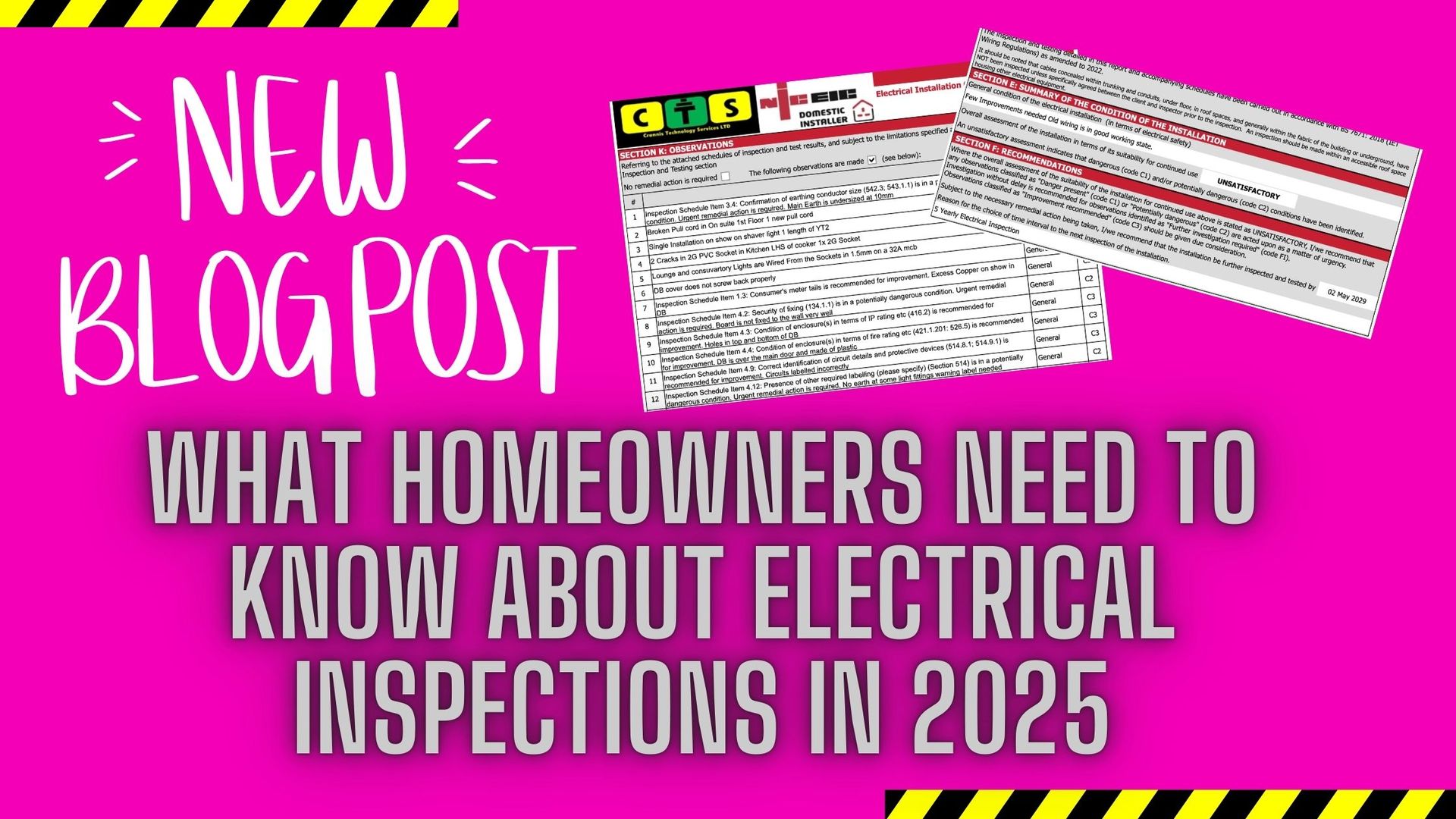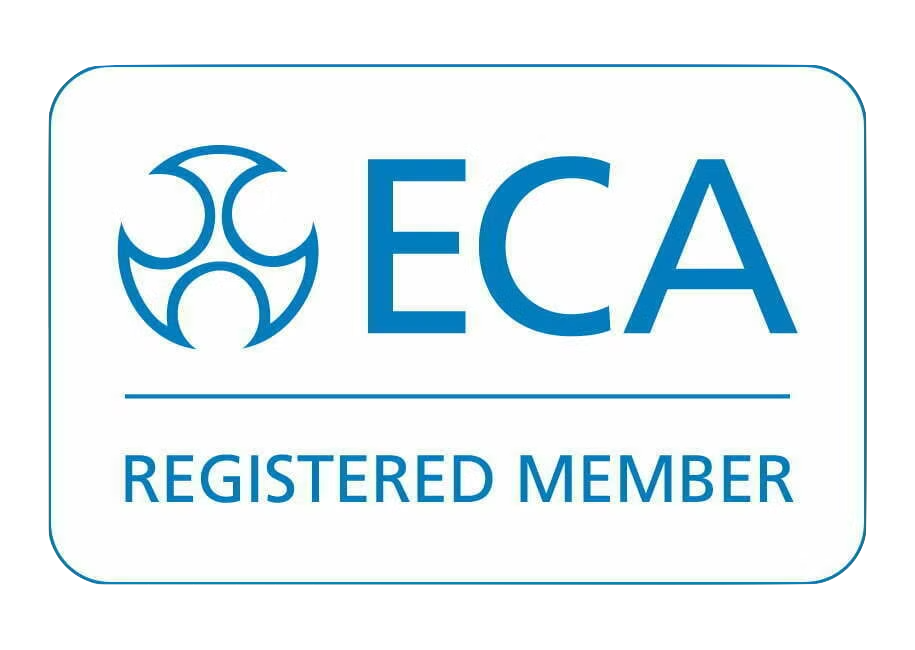What Homeowners Need to Know About Electrical Inspections in 2025

Electrical safety is something many homeowners overlook—until something goes wrong. But did you know that faulty electrics cause around 7,000 house fires every year in the UK? An Electrical Installation Condition Report (EICR) is a crucial step in keeping your home safe, compliant, and energy-efficient. Whether you're a new homeowner, planning renovations, or just want peace of mind, here’s everything you need to know about electrical inspections in 2025.
1. What Is an Electrical Inspection?
An electrical inspection is a thorough check of your home’s wiring, sockets, consumer unit (fuse box), and other electrical components. It ensures everything is safe, up to current regulations, and functioning correctly.
At the end of the inspection, you’ll receive an EICR report, which highlights any issues that need urgent attention, recommended improvements, and an overall safety rating.
🔎 Key point: in 2025, electrical standards continue to evolve, making it even more important to stay compliant.
2. How Often Should You Get an Electrical Inspection?
Many homeowners aren’t aware of the recommended inspection schedule, but staying on top of it can prevent costly repairs and hazards.
🏡 For homeowners: every 10 years or when buying/selling a property
🏠 For landlords: every 5 years (a legal requirement under UK law)
🔌 For rented properties: before a new tenancy starts
🛠️ After major electrical work: to ensure compliance with BS 7671 wiring regulations
✅ Tip: if you’ve recently moved into a home and don’t know when the last inspection was, it’s best to book one as soon as possible.
3. What Happens During an Electrical Inspection?
A qualified electrician will:
✔️ Check your consumer unit (fuse box) for faults or outdated components
✔️ Inspect wiring, sockets, and switches for damage, overheating, or loose connections
✔️ Test Residual Current Devices (RCDs) to ensure they provide shock protection
✔️ Look for signs of electrical wear and tear that could become hazards
✔️ Assess if your home meets current UK electrical safety standards
The electrician will then classify any issues:
⚠️ C1 (Danger present): immediate risk—urgent repairs needed
⚠️ C2 (Potential danger): fixes required to avoid hazards
⚠️ C3 (Improvement recommended): not dangerous but should be updated
💡 Did You Know? Many older properties in Swindon still have outdated consumer units or wiring that may not meet modern safety standards. For more information, see our blog post The EICR Report Explained.
4. How Much Does a Home Electrical Inspection Cost in 2025?
The price of an EICR varies depending on the size of your home and the complexity of your electrical system.
💰 Typical Costs for EICRs in 2025:
🏠 1-2 bedroom house/flat: £100 - £200
🏡 3-4 bedroom house: £150 - £300
🏘️ Larger homes: £300+
⚡ Why it’s worth it: an inspection might seem like an extra cost, but catching electrical issues early can prevent expensive repairs or fire risks down the line.
✅ Tip: When booking an inspection, always use a qualified electrician registered with NICEIC or NAPIT for professional, certified work.
5. Signs You Need an Electrical Inspection Sooner
Not sure if you need an inspection right now? Look out for these warning signs:
⚡ Flickering or dimming lights
⚡ Frequent circuit breaker trips
⚡ Buzzing or crackling sounds from sockets
⚡ Burning smells near electrical outlets
⚡ Discoloured or scorched plug sockets
⚡ Old or outdated fuse boxes
If you notice any of these, don’t wait for your next scheduled inspection—book one ASAP.
Stay Safe with a Professional Electrical Inspection
An electrical inspection isn’t just about ticking a box—it’s about protecting your home, your family, and your finances. Regular checks help prevent electrical fires, reduce risks, and keep your home compliant with UK safety laws.
📞 Looking for a trusted electrician in Swindon? Crannis Technology Services Ltd offers professional, reliable electrical inspections to give you total peace of mind.
💡 Book your EICR today and ensure your home is electrically safe in 2025!




